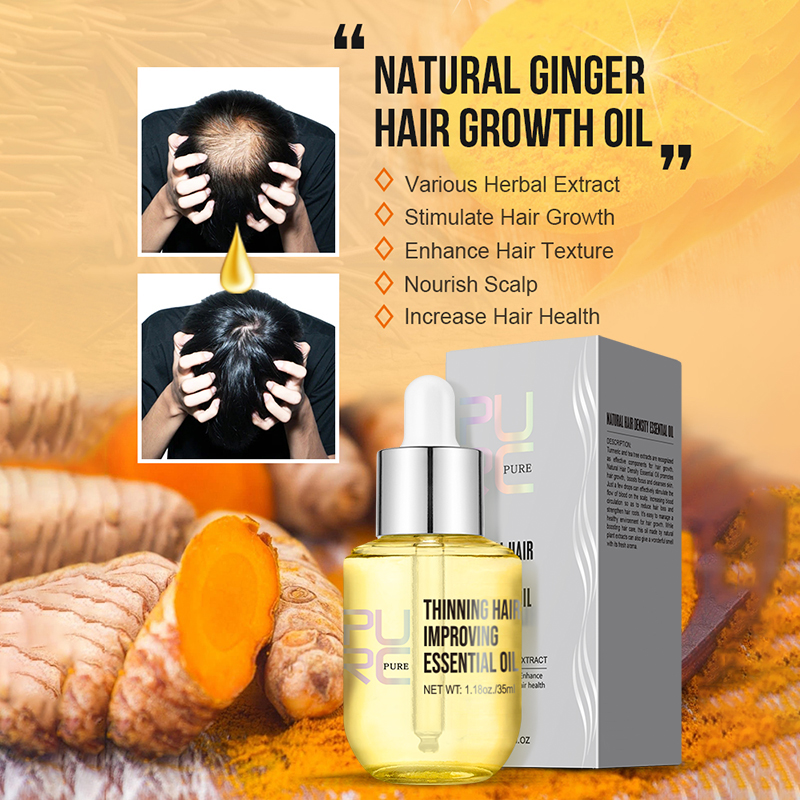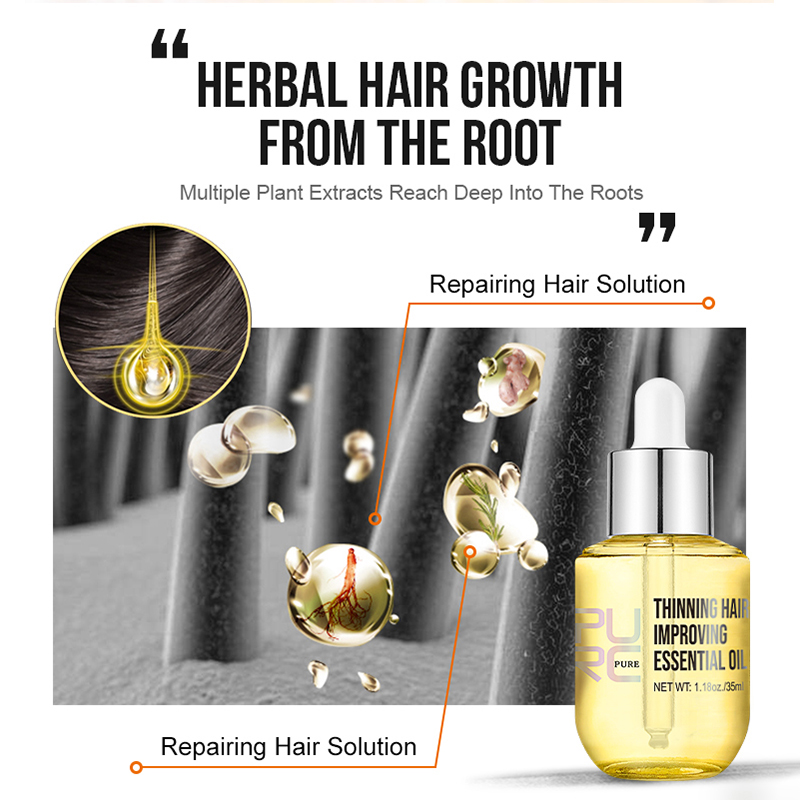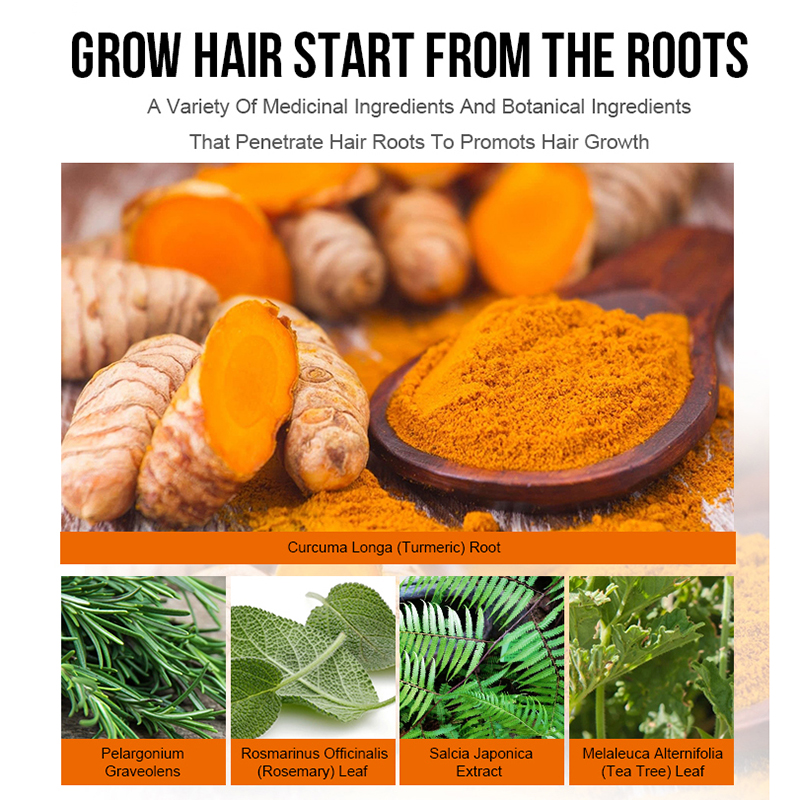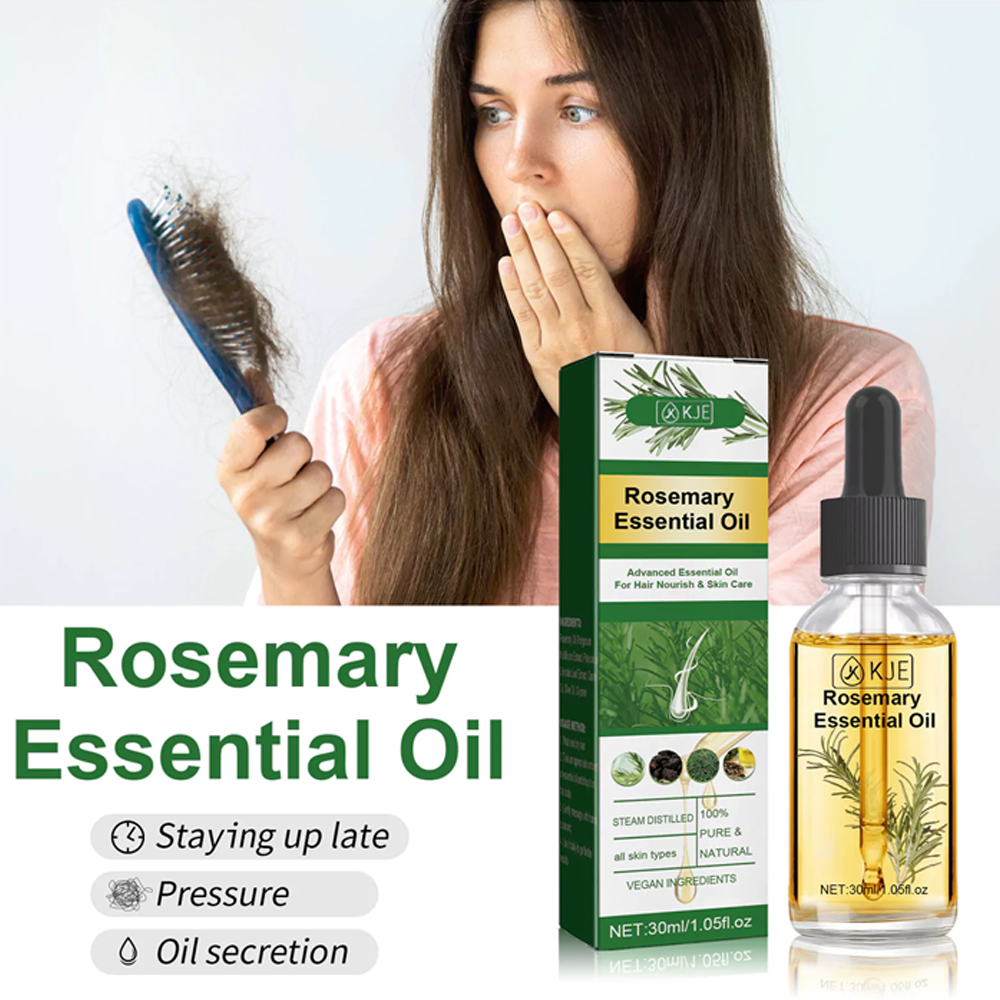Introduction
In recent years, hair growth oils have gained immense popularity, becoming a common fixture in many people’s hair care regimens. Marketed as miracle solutions for achieving longer, thicker hair, these oils promise significant improvements in hair health and growth. However, amidst the sea of products and marketing claims, it’s essential to dissect whether these oils genuinely offer the benefits they promise. This guide aims to provide a comprehensive look at hair growth oils, exploring their effectiveness, understanding their ingredients, and how to use them correctly for optimal results.

Understanding Hair Growth
Hair Growth Cycle
The hair growth cycle is a complex and dynamic process, consisting of four distinct phases that dictate the length and health of our hair:
Anagen Phase: This phase represents the active growth period where hair follicles are highly productive. It typically lasts between 2 to 7 years and determines the potential length of the hair. During this phase, cells in the hair follicle divide rapidly, contributing to hair lengthening.
Catagen Phase: Lasting about 2-3 weeks, this transitional phase signals the end of active hair growth. Hair follicles shrink, and the hair strand detaches from the blood supply, preparing for the next stage.
Telogen Phase: The resting phase, which lasts around 3 months, involves a temporary halt in hair growth. Although hair follicles are inactive, the hair remains attached to the scalp.
Exogen Phase: This is the shedding phase, where old hairs are expelled to make way for new growth. On average, individuals shed 50 to 100 hairs daily during this phase.
Factors Affecting Hair Growth
Genetics: Genetics play a pivotal role in determining hair growth patterns, density, and overall health. Family history can influence tendencies towards hair thinning or loss, with genetic predispositions significantly impacting hair growth rates.
Hormones: Hormonal imbalances, particularly involving androgens such as DHT (dihydrotestosterone), can disrupt the hair growth cycle. Elevated DHT levels may lead to the miniaturization of hair follicles, resulting in thinner, shorter hairs.
Diet and Nutrition: Proper nutrition is fundamental to maintaining healthy hair. Vitamins and minerals, including biotin, vitamin D, iron, and zinc, support robust hair growth and prevent deficiencies that may lead to hair loss.
Scalp Health: A well-maintained scalp is essential for hair growth. Conditions like dandruff, psoriasis, and seborrheic dermatitis can hinder healthy hair growth by creating an unsuitable environment for hair follicles.

Lifestyle Factors: Stress, lack of sleep, and overall health significantly impact hair growth. Chronic stress can push hair follicles into the resting phase prematurely, leading to increased hair shedding and potential thinning.
Common Ingredients in Hair Growth Oils
Hair growth oils often feature a blend of natural and essential oils known for their beneficial properties. Understanding these ingredients can help you choose the most effective products for your needs.
Natural Oils
Castor Oil: Castor oil is renowned for its high ricinoleic acid content, which has anti-inflammatory properties that promote blood circulation to the scalp. This increased circulation can stimulate hair follicles and encourage growth.
Coconut Oil: Coconut oil is known for its ability to penetrate the hair shaft, reducing protein loss and preventing damage. Its medium-chain fatty acids nourish and strengthen hair, improving overall health and appearance.
Argan Oil: Rich in antioxidants, vitamin E, and essential fatty acids, argan oil helps to moisturize and protect hair from environmental damage. It enhances hair shine and smoothness while reducing frizz and breakage.
Jojoba Oil: Jojoba oil closely resembles the scalp’s natural sebum, making it an excellent moisturizer. It helps regulate oil production, preventing both excessive dryness and oiliness, thereby creating a balanced scalp environment conducive to hair growth.
Essential Oils
Peppermint Oil: Peppermint oil’s cooling effect is more than just soothing; it stimulates blood flow to the scalp and promotes hair growth during the anagen phase. Its menthol content can also invigorate the scalp, enhancing overall hair health.
Rosemary Oil: Rosemary oil has been shown to improve cellular metabolism in hair follicles, potentially increasing hair growth. It is also known for its ability to prevent premature graying and alleviate dandruff, contributing to a healthier scalp.
Lavender Oil: Lavender oil’s antimicrobial properties help maintain a healthy scalp environment by preventing infections and balancing natural oil production. It also promotes relaxation, reducing stress-related hair loss.
Tea Tree Oil: With potent antimicrobial and anti-inflammatory properties, tea tree oil can help prevent scalp infections and conditions like dandruff. It helps maintain a clean and healthy scalp, which is vital for optimal hair growth.

Other Beneficial Ingredients
Biotin: Biotin, a B-vitamin, is critical for keratin production, the protein that makes up hair. Supplementing with biotin can support healthy hair growth and prevent deficiencies that may contribute to hair loss.
Vitamin E: Vitamin E is an antioxidant that reduces oxidative stress on the scalp, promoting a healthier environment for hair growth. It also helps to improve blood circulation and nourish hair follicles.
Aloe Vera: Aloe vera’s soothing and moisturizing properties make it an excellent addition to hair care routines. It helps calm an irritated scalp, reduces inflammation, and provides essential nutrients that promote healthy hair growth.
Scientific Evidence and Research
The effectiveness of hair growth oils is often debated within scientific circles. Several studies and expert opinions offer insights into their benefits and limitations.
Studies Supporting Hair Growth Oils
Research has demonstrated positive outcomes with various hair growth oils. For example, a study published in the “Toxicological Research” journal found that peppermint oil significantly increased the number of hair follicles, follicle depth, and dermal thickness in test subjects. Similarly, a study on rosemary oil compared it to minoxidil, a commonly used hair loss treatment, and found it to be similarly effective in promoting hair growth.
Limitations of Current Research
While studies offer promising results, they often have limitations, such as small sample sizes, short durations, and varying methodologies. More extensive, long-term studies are needed to provide conclusive evidence on the effectiveness of hair growth oils.
Expert Opinions
Dermatologists and trichologists generally support the use of hair growth oils as part of a comprehensive hair care regimen. They recommend incorporating these oils alongside other treatments and maintaining a healthy lifestyle for the best results. Users often report improvements in hair texture and scalp health, although individual experiences can vary.
How to Use Hair Growth Oils Effectively
To achieve the best results from hair growth oils, proper application and consistent use are essential.
Application Methods
Scalp Massage: Massaging the scalp with hair growth oil helps increase blood circulation, which can stimulate hair follicles and promote growth. Use your fingertips to apply gentle pressure in circular motions, ensuring even distribution of the oil.

Leave-In Treatment: Applying hair growth oil as a leave-in treatment allows the scalp to absorb nutrients over time. This method is especially useful for oils that are lightweight and non-greasy, as they can be worn throughout the day or overnight without causing buildup.
Hot Oil Treatment: Heating hair growth oil slightly before application can enhance its penetration into the hair shaft and scalp. This method provides deep conditioning benefits and can help improve the overall health of your hair.
Frequency of Use
The frequency of application varies depending on the type of oil and individual needs. Generally, applying hair growth oil 2-3 times a week is recommended. Adjust the frequency based on how your scalp and hair respond to the treatment.
Combining with Other Treatments
Hair growth oils can be used in conjunction with shampoos, conditioners, and supplements to enhance their effectiveness. Combining these oils with other hair care practices, such as avoiding excessive heat styling and reducing chemical treatments, can contribute to better results.
Potential Side Effects and Precautions
While hair growth oils are generally safe, there are potential side effects and precautions to consider.
Allergic Reactions
Some individuals may experience allergic reactions to certain oils. It’s crucial to perform a patch test before using a new oil. Apply a small amount to the inner arm and wait 24 hours to check for any adverse reactions.
Scalp Irritation
Certain oils, especially essential oils, can cause scalp irritation if not diluted properly. Always mix essential oils with a carrier oil and avoid using undiluted oils directly on the scalp.
Contraindications
Individuals with specific scalp conditions or sensitivities should consult a healthcare professional before using hair growth oils. Conditions such as seborrheic dermatitis or psoriasis may require specialized treatments that are not compatible with these oils.
Case Studies and Testimonials
Real-life experiences provide valuable insights into the practical benefits and limitations of hair growth oils.
Success Stories
Many users report positive outcomes from using hair growth oils. For instance, a user who experienced thinning hair found significant improvement in thickness and reduced hair fall after six months of consistent use of a rosemary and peppermint oil blend.
Mixed Results
Not all users experience the same level of success. Factors such as genetics, overall health, and consistency in application can influence results. Some users report minimal changes in hair growth but notice improvements in hair texture and scalp health.
Alternatives to Hair Growth Oils
If hair growth oils are not providing the desired results, several alternative methods can promote hair growth.
Topical Treatments
Minoxidil: Minoxidil is an FDA-approved topical treatment for hair loss. It works by stimulating hair follicles and promoting new hair growth. Available in
various formulations, it is commonly used to treat androgenetic alopecia.
Finasteride: Finasteride is an oral medication that inhibits the conversion of testosterone to DHT, a hormone linked to hair loss. It is used primarily for male pattern baldness and requires a prescription from a healthcare provider.

Hair Growth Supplements
Biotin Supplements: Biotin supplements are popular for supporting hair health. They are believed to improve hair strength and promote growth. However, their effectiveness can vary, and they are best used in conjunction with other treatments.
Iron and Zinc Supplements: Deficiencies in iron and zinc can lead to hair loss. Supplementing these nutrients can help address deficiencies and support overall hair health.
专业治疗
Hair Transplants: Hair transplant procedures involve moving hair follicles from one part of the scalp to another. This surgical option provides permanent results but comes with higher costs and recovery times.
Laser Therapy: Low-level laser therapy (LLLT) uses light to stimulate hair follicles and promote hair growth. It is a non-invasive treatment that may benefit individuals with certain types of hair loss.
Conclusion
Hair growth oils offer a range of potential benefits, from nourishing the scalp to stimulating hair follicles. While some scientific evidence supports their effectiveness, individual results can vary based on numerous factors. A holistic approach, incorporating hair growth oils with a healthy lifestyle, proper hair care practices, and potentially other treatments, often yields the best results. By understanding the ingredients, application methods, and possible alternatives, you can make informed decisions about incorporating hair growth oils into your hair care routine.
Call to Action
Explore the world of hair growth oils and find the ones that work best for your hair type and needs. Experiment with different oils, follow application guidelines, and monitor your results to determine their effectiveness. Share your experiences and insights with others to contribute to a supportive community of hair care enthusiasts. Consult with a healthcare professional for personalized advice and to address any specific hair growth concerns you may have.



